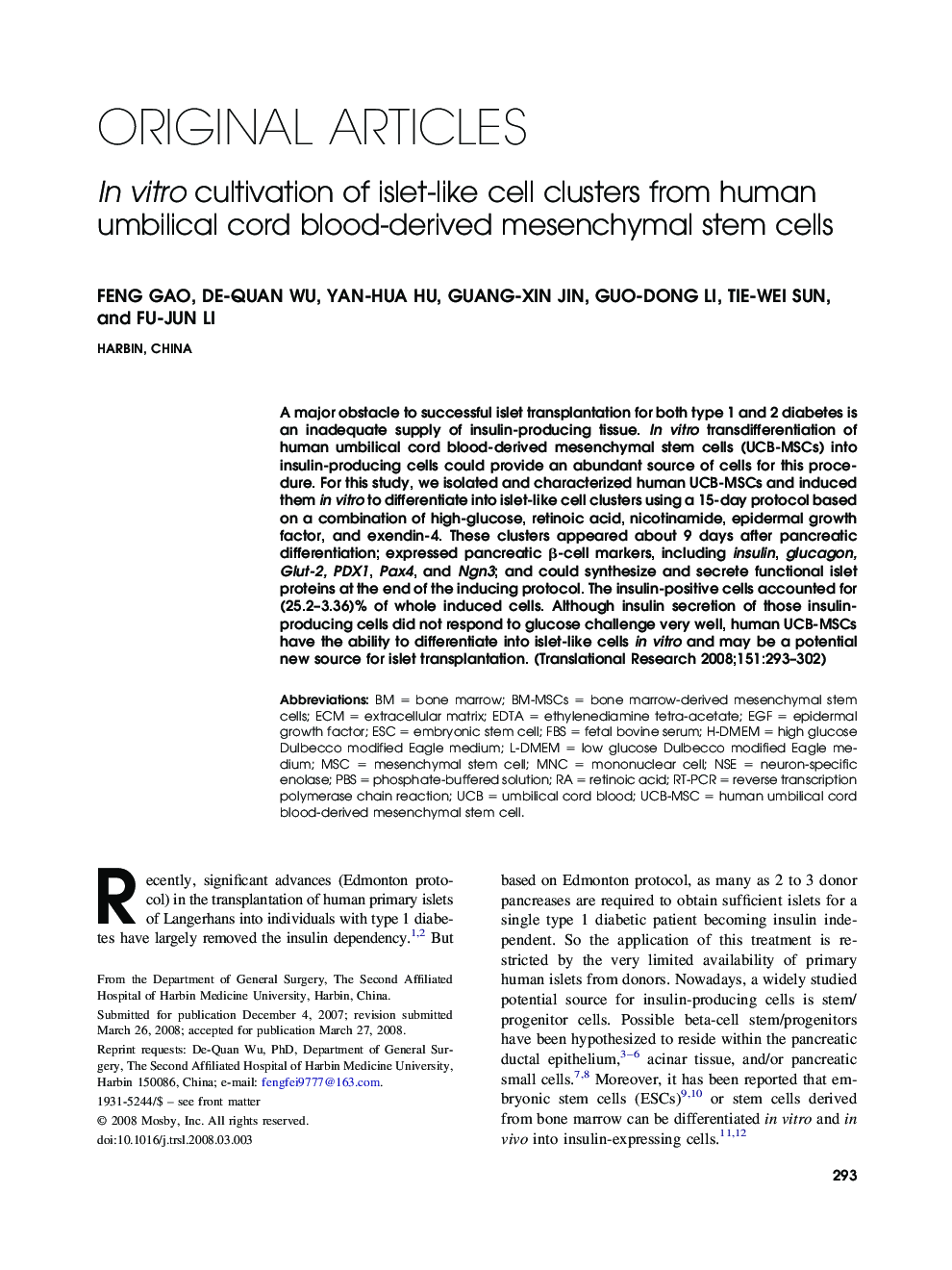| Article ID | Journal | Published Year | Pages | File Type |
|---|---|---|---|---|
| 3841332 | Translational Research | 2008 | 10 Pages |
A major obstacle to successful islet transplantation for both type 1 and 2 diabetes is an inadequate supply of insulin-producing tissue. In vitro transdifferentiation of human umbilical cord blood-derived mesenchymal stem cells (UCB-MSCs) into insulin-producing cells could provide an abundant source of cells for this procedure. For this study, we isolated and characterized human UCB-MSCs and induced them in vitro to differentiate into islet-like cell clusters using a 15-day protocol based on a combination of high-glucose, retinoic acid, nicotinamide, epidermal growth factor, and exendin-4. These clusters appeared about 9 days after pancreatic differentiation; expressed pancreatic β-cell markers, including insulin, glucagon, Glut-2, PDX1, Pax4, and Ngn3; and could synthesize and secrete functional islet proteins at the end of the inducing protocol. The insulin-positive cells accounted for (25.2–3.36)% of whole induced cells. Although insulin secretion of those insulin-producing cells did not respond to glucose challenge very well, human UCB-MSCs have the ability to differentiate into islet-like cells in vitro and may be a potential new source for islet transplantation.
